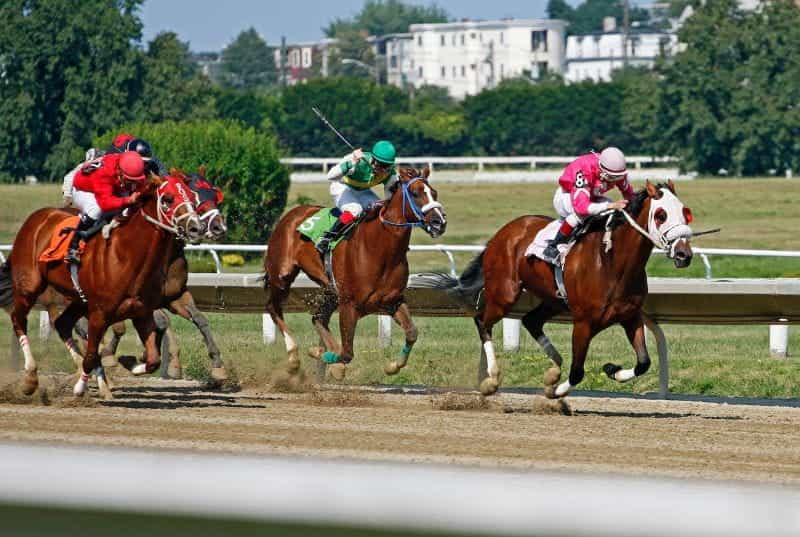BHA Unveils Concussion Research Project
The BHA has launched a new study, with the aim of improving care for jockeys suffering from concussions. Researchers will trial the use of virtual reality headsets as an innovative rehabilitation technique. Jump and point-to-point jockeys have been invited to participate in the groundbreaking study.

Concussions are the third most common injury in horseracing. ©James Anthony/Pexels
Innovative Technologies
The British Horseracing Authority has announced a new study into the effects of concussions on jump jockeys. Concussions are the third most common injury in horseracing, and can cause numerous problems for riders. An impact to the head or body or a fall from the horse can result in dizziness, balance problems and difficulty with head-eye coordination.
The BHA has reached out to jump and point-to-point jockeys interested in taking part in the study, which will explore how virtual reality technology can be used alongside existing care to improve the management of concussions in racing. Jockeys over the age of sixteen who would like to learn more about the project can find more information at the research homepage.
The study, titled “Investigating Vestibular-Oculomotor Functions Following Sports-Related Concussions”, is being carried out in partnership with researchers at the University of Bath, NeuroFlex and the Injured Jockeys Fund. Researchers will examine the use of NeuroFlex virtual reality headsets alongside usual assessment and rehabilitation techniques with the aim of improving how British racing tests head-eye coordination and supports post-concussion recovery.
23-year-old jockey Will Marshall recently shared his struggles post-concussion in an exclusive with the Racing Post. Marshall has been out of action for a year, but is still hopeful that he will make it back to the weighing room sometime soon.
It all started after a fall at Perth, in April 2021. Recounting the incident, Marshall says that he has not been right since that day. What started out as a concussion has persisted with serious impacts to his daily life. After experiencing headaches, the young jockey attempted to carry on riding. He now experiences pressure in the back of his head, affecting his vision, coordination and balance.
According to Marshall, the pressure is made worse by activities a small as tying a shoelace. The only relief he has managed to get from the condition involves lying down completely flat. For a rider keen to make his name in sport, it’s a depressing situation.
Impact on Everyday Life
Medical advisors have carried out various tests on the jockey, including twelve to fifteen MRI scans, countless CT scans and two myelograms. The problem has been diagnosed as leaking cerebrospinal fluid from his spinal cord, and injury normally associated with car crashes. Marshall believes that he is the first jockey to have suffered this injury from a race fall.
In May, surgery was carried out in an attempt to alleviate his symptoms. Unfortunately, the two epidural blood patches failed to offer any relief. Doctors now believe that Marshall has a rare kind of CSF leak called a venous fistula, meaning that the fluid is leaking into a vein. There is hope, as further surgery is planned for next month.
Marshall’s situation is an extreme example of the problems that concussions can cause for sports people. The problem is not limited to horseracing, and poses a risk to footballers and rugby players. Former England hooker Steve Thompson, who was part of the country’s winning 2003 World Cup squad, has gone as far as to say that playing rugby was not worth the risk.
Thompson was one of the first former rugby players to disclose his diagnosis of early onset dementia. The condition has affected his memory, and he has claimed that he cannot remember winning the career-defining match nearly twenty years ago. Thompson is now campaigning to make the game safer.
In 2020, alongside seven other players under the age of 45 who have received similar diagnoses, he proposed taking legal action against World Rugby for failing to protect players. His new memoir, “Unforgettable: Rugby, Dementia and the Fight of My Life”, details the toll that the devastating disease has had on him and his family. The book is one of fifteen shortlisted for the prestigious William Hill Sports Book of the Year award.
Calls for Action
Concussions and brain injuries are high up on the professional sports agenda, amidst growing calls for governing bodies to take action. Last year, an inquiry carried out by the DCMS stated that urgent action from the government and governing bodies is necessary to understand the implications of sports concussions.
The report uncovered multiple failings, and called for the introduction of a UK-wide minimum concussion protocol. Committee chair Julian Knight slammed the Health and Safety Executive, which he accused of allowing sports to mark their own homework. The report recommended that HSE collaborate with sports organizations to create a national framework for reporting sports injuries by July 2022.
Last December, the government announced its plans to bring in those protocols, in partnership with medical experts and sports governing bodies. Former sports minister Nigel Huddleston praised the plans, which are focusing on how new technology can be used to elevate understanding of sports injuries. Huddleston said:
“Sport brings so many physical and mental health benefits to our lives. However player safety must be absolutely paramount. Working with the sports industry it is right that we do all we can to ensure that people are as protected as possible and the risk of head injuries are minimised.”
While being active is proven to lower the risk of a wide range of health conditions, advances in in training, coaching, equipment and technology have had mixed effects. Athletes across sports are stronger, faster and better-trained, but support for those suffering sports injuries has not kept pace.
Sports bodies are also doing their bit to safeguard players. This year, World Rugby set new “Graduated Return to Play” protocols, which have been described as second to none. Elite players who have a history of concussion and are removed from a match with concussion symptoms must now sit out of competitions for at least twelve days.



